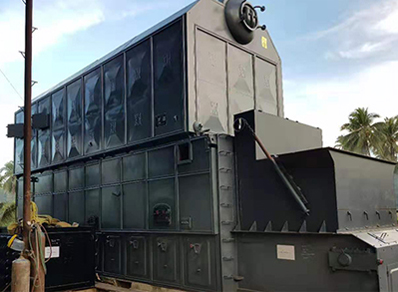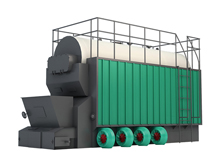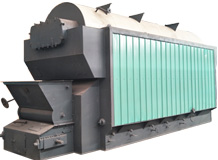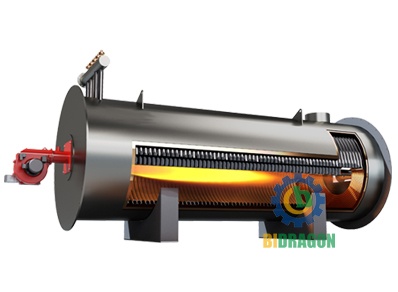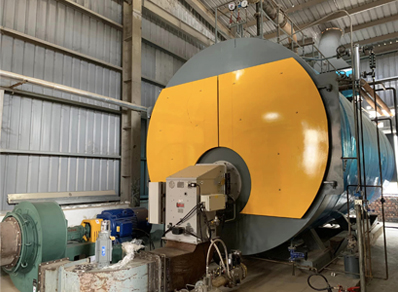
What are the Advantages of Biomass Boilers
In the context of today's energy transition, there is a growing demand for sustainable, efficient and environmentally friendly energy solutions. Biomass boilers, as a kind of innovative energy equipment, are gradually emerging in the energy market. So, what are the advantages of biomass boilers that make them stand out in the crowd of energy equipment? Let's explore in depth together.
What is biomass?
Biomass, organic material used for energy production, through which the process of generating energy is known as bioenergy. Its common forms include existing or recently survived plants, as well as biological waste from industry and households. Due to its broad coverage, the physical composition of biomass is not uniform, but usually contains carbon, water and organic volatiles. When producing energy from biomass, the term “feedstock” is used to refer to any organic material that will be used to produce energy. These feedstocks must then be converted into a usable form of energy through one of many processes.
Advantages of biomass boilers
Renewable energy
Biomass boilers use renewable energy sources that can be quickly replenished in a short period of time. Biomass fuels are more sustainable than non-renewable fossil fuel boilers such as oil. Biomass sources such as trees can be continuously regenerated through cultivation, whereas fossil fuels such as oil take a long geologic time to form and cannot be replenished in a short period of time once they are depleted.
Lower emissions
Biomass boilers produce fewer carbon emissions than other conventional heating systems. This is due to the fact that biomass fuels burn more efficiently and produce fewer pollutants, making them ideal for reducing your carbon footprint and moving towards a greener lifestyle. The carbon dioxide released during the combustion process of a wood-fueled biomass boiler is roughly equivalent to the carbon dioxide absorbed during the growth of a tree, which is close to achieving “carbon neutrality” from a carbon cycle perspective.
Cost-effective
There is no doubt that a biomass boiler is more cost-effective than a conventional boiler. To a certain extent, it helps users to counteract the effects of rising fossil fuel and electricity prices. The price of biomass fuels (e.g. wood pellets) alone, for example, is significantly lower than that of natural gas and oil. Currently, the price of traditional fuels such as oil and natural gas continues to climb, and this trend is unlikely to change in the short term. Biomass wood fuels, on the other hand, are much more stable in price, so users don't have to worry about significant increases in their bills. Buying biomass fuels in large quantities can also significantly reduce fuel costs. Logs may be cheaper than wood pellets if there are good quality local sources. Biomass energy comes from renewable organic waste, which, if not utilized, will either be landfilled, burned in the open, or become a forest fire hazard, while converting it into energy realizes the benefits of turning waste into treasure, and has environmental benefits while reducing costs.
Functional diversity
Biomass boilers can supply hot water and generate electricity on demand. Unlike other heating systems such as solar thermal or geothermal energy, biomass boilers can be used as a backup heat source in addition to the main heat source. While solar heating systems are limited in their ability to supply heat on cloudy days or in winter when there is insufficient solar radiation, biomass boilers are not affected by this and can provide heat steadily.
Efficiency
The efficiency of a biomass boiler is affected by a number of factors, such as the type of biomass fuel used, the size of the boiler and routine maintenance. Different biomass fuels have different energy densities, for example, wood pellets have a higher energy density than wood chips, which means more heat is released per unit of energy. Boiler size also affects efficiency, with boilers with larger heat exchangers being more efficient compared to those with smaller heat exchangers. Regular maintenance of biomass boilers is essential to improve overall efficiency.
Utilization of waste wood
Biomass energy is an effective way to dispose of waste wood. If you are in a rural area or run a related business, you often have access to large quantities of burnable wood. This means that new biomass energy systems are more sustainable because local wood can be used directly, reducing transportation. The trimmings and waste wood produced by some wood processing plants can be used as fuel for biomass boilers, allowing for a secondary use of resources.
Applicable to off-grid areas
Another major advantage of biomass boilers is that they do not need to be connected to public utilities. It is the ideal solution for off-grid areas where heating and hot water are required. In remote mountainous areas or areas with unstable power supply, biomass boilers can operate independently to safeguard factory production.
Working principle of biomass boilers
The operation of a biomass boiler is based on a simple principle: burning biomass to generate heat. Its main components include fuel storage system, combustion chamber, heat exchanger and flue gas outlet.
Fuel storage
Biomass boilers require an area to store biomass fuel. Depending on the size of the system, fuel storage can be in the form of a hopper or a larger silo, e.g. by means of a fuel hopper with automatic feed to transport the biomass to the combustion chamber.
Combustion chamber
The biomass fuel is fed into the combustion chamber where it comes into contact with oxygen and ignites. The combustion process releases heat energy in the form of hot gases.
Heat exchanger
The heat generated by combustion is transferred to water or other heat transfer fluids in a closed system. The heat exchanger facilitates this heat transfer process and ensures that the heat is utilized efficiently.
Heat distribution
The heated fluid is then circulated within the building to heat the space. This can be accomplished through radiators, radiant floor heating systems, or forced air circulation.
Flue gas outlet
At the end of the combustion process, flue gases containing water vapor and other by-products are produced. These gases exit the building through a flue gas outlet or chimney. In urban areas or air quality control areas, these emissions may require additional filtration systems to meet local regulations.
Biomass fuels and the environment
At first glance, cutting down trees to secure a business's production does not seem like an environmentally friendly thing to do. However, much of the timber felled in the industry is sustainably grown and managed by farmers who plant trees or other suitable crops to produce fuel, and the amount of biomass produced is controlled throughout the life of the estate.
Large quantities of biomass can also come from recycled wood and plant material that would otherwise be treated as waste. The use of wood, whether recycled or directly felled, is actually considered to be highly sustainable.
When using a biomass boiler, emissions from large vehicles transporting wood fuel are also an environmental consideration. However, wood can often be sourced locally, which both minimizes emissions from fuel transportation and contributes to the local economy. In addition, some fuel silos can store up to a year's worth of fuel, thus eliminating the need for frequent transportation.
Types of biomass fuels
Biomass fuels come from a variety of sources, providing a wealth of options for biomass boilers. Wood is a common biomass fuel, which exists in the form of logs, wood chips, wood pellets, etc. Among them, wood chips and wood pellets have good mobility and are easy to be added manually or automated, while logs are mostly added to boilers manually, and have high energy density for stable heat supply.
Rice husk as a large number of by-products of food processing, light texture and loose porous, conducive to contact with the air combustion, will be used in biomass boilers, to achieve the resourceful use of waste, but its energy density is lower than that of wood, need to reasonably regulate the combustion parameters.
Animal manure from large-scale animal husbandry, after treatment can become fuel, fermentation release of methane and other combustible gases can supply energy for the boiler, combustion ash rich in nitrogen, phosphorus, potassium and other elements, can be used as fertilizer, the formation of agro-ecological virtuous cycle.
These biomass fuels cost less than traditional fossil fuels, are relatively easy to obtain and play an important role in sustainable energy development.
Are biomass boilers worth choosing?
For industrial enterprises, biomass boilers show unique value in many ways. From the environmental point of view, industrial production is facing increasingly stringent environmental regulations, biomass boiler combustion of carbon dioxide emissions are relatively low, and can use the organic waste generated by the industry itself as a fuel to reduce the pressure of waste on the environment, which is in line with the current trend of green development.
On the economic side, industrial enterprises consume huge amounts of energy and cost control is crucial. While traditional energy prices fluctuate frequently, biomass fuel prices are relatively stable and can effectively reduce energy procurement costs in the long run.
Bulk purchase of biomass fuel can also enjoy certain price concessions, further reducing expenses. At the same time, high-efficiency biomass boilers can improve the efficiency of energy utilization, reduce energy waste, and enhance the economic benefits of enterprises.
Combined the above factors, for enterprises, biomass boilers are not lost as a kind of environmental protection to meet the standards, but also to achieve cost-effective quality energy solutions, it is worth in-depth evaluation and selection.
Applications for biomass boilers
In industrial and production scenarios, biomass boilers, with their unique advantages, show a wide range of potential applications, providing a reliable and efficient solution for energy supply and sustainable development in many areas.
Food Processing
The food processing industry has a great demand for steam. Like food canneries, biomass boilers can use waste agricultural products as fuel during the sterilization process to efficiently produce the required steam. This process not only meets the heating needs of production, but also to achieve the resource utilization of waste, reduce production costs, reduce waste emissions, to achieve a win-win situation for heating and resource recovery.
Pulp and Paper
Pulp and paper making process, cooking, drying and other aspects of energy consumption is amazing. Biomass boilers are able to convert waste wood and wood chips, which are originally pollutants, into clean heat energy. In this way, not only significantly reduce production costs, but also effectively reduce the negative effects on the environment, helping the paper industry green development.
Energy-intensive industries (pharmaceutical, chemical, medical)
In the context of rising oil and natural gas prices, biomass boilers for the pharmaceutical, chemical, medical and other energy-intensive industries to bring a new choice of economic and environmentally friendly thermal energy. In the pharmaceutical industry, for example, precise temperature control has a significant impact on the quality of drugs, biomass boilers can not only be a stable heat supply, but also its combustion emissions in full compliance with stringent environmental standards.
Power Generation
As society's demand for electricity continues to rise, the importance of sustainable power generation technologies is becoming more and more apparent. Biomass-fired boilers use organic waste as the main fuel, which is first gasified and then burned at high temperatures to produce steam, which drives a turbine generator rotor to generate electricity. Biomass boilers can reduce carbon dioxide and other pollutant emissions by 30% to 50% compared to coal-fired power plants, making them a key path to a greener power supply.
Textile Processing
Textile production involves fiber treatment, dyeing, drying and many other processes that require large amounts of heat. A biomass boiler generates heat by burning biomass, providing a steady supply of energy for all aspects of textile production. In the dyeing process, its precise temperature control capability guarantees uniformity of dyeing, thus improving product quality, while also reducing costs and pollution.
Conclusion
Biomass boilers offer a number of significant advantages, including renewable energy utilization, low emissions, cost-effectiveness, versatility, ability to efficiently utilize waste wood, suitability for off-grid areas, etc., and have been widely and excellently used in a variety of applications in industry, power generation, textile and food production.
It is hoped that more users will pay attention to and rationally utilize biomass boilers, contributing to the realization of sustainable energy use and environmental protection. In the process of selection and use, it is important to follow professional advice to ensure its safe and efficient operation.

